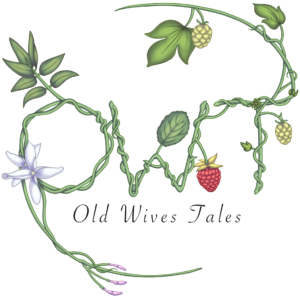Providing your child with natural remedies helps support growth and wellbeing.
All children go through periods of growth and during this time nutrients are used up quickly. Bone growth can lead to a deficit of calcium at the end of the growth cycle. Times like the “terrible two’s” are a perfect example. Calcium is not only used for bone growth but also is required to calm the nervous system.
Baby growth spurts occur:
1-3 and 6 – 8weeks & 3, 6 and 9 months of age.
Daily recommended calcium requirements for children are as follows:
Age and Calcium requirement
0-6 months 210 mg per day
7-12 months 270 mg per day
1-3 years 360 mg per day
4-8 years 520 mg per day
9-13 years 800-1050 mg per day
14-18 years 1050 mg per day
After a child’s period of high growth, you may notice irritability, nervousness, and just generally excitable behaviours. This could be due to lack of calcium in the system. Replenishing calcium with teas is gently soothing, and can calm a ‘fussy’ child.
The following tea is a formula helpful during stressful times such as colic, teething and fever.
Children’s Calming Tonic
▪ 2 part Chamomile flowers (full of calcium)
▪ 2 part Lemon balm leaf (nervous system support)
▪ 2 part Green oats (oat straw) (improves moods)
▪ 1 part Catnip leaf (perfect for infant colic, and reduces tummy pains)
▪ 1 part Rose petals (improvs digestion)
▪ 1 part Hawthorn berries, flowers and/or leaves (reduces stomach pain and improves digestion)
▪ Pinch of stevia to sweeten (optional but not necessary) or add a little apple juice
Add all ingredients to a storage jar and keep in a cool cupboard.
Make a normal tea infusion (keeping a lid on the pot while brewing).
This tea can be used as often as you like and is safe for children.
For infants, soaking a clean wash cloth in the tea and letting them suck the cloth is a great way to get them to drink the tea.
Putting the soaked cloth in the freezer can also be a great way to help with teething when you let them suck the cloth.
The level of bone growth that has been supported in a child, dictates the level of bone loss during later stages of life. Peak bone growth occurs from birth to 20 years of age. Good calcium levels are required until this age.
The highest source of calcium is dairy, such as milk, plain yoghurt, cottage and cheddar cheeses. Parmesan cheese also contains good levels of calcium (100g = 90% of daily recommended intake), and contains very little lactose which is good for those intolerant to lactose. Natural yoghurt that has been in the fridge for a few days, also has less lactose, as the bacteria in the yoghurt use the lactose for their own food.
Many people, for a variety of reasons, cannot or do not drink milk, and some cultures do not use milk at all. Some vegetarians exclude milk as well as meat; and some people are allergic to milk protein or are lactose intolerant. Others simply just don’t enjoy the taste of milk.
It is possible for people who do not drink milk to obtain adequate calcium, but only if other food sources are selected carefully.
Sources include small fish (with bones) like sardines, mustard and turnip greens, bok-choy, kale, parsley, watercress, broccoli, peanut butter, tofu, flour tortilla (fortified), oranges, kiwi fruit, mulberries and blackberries, paw paw and passionfruit, sunflower seeds, almonds, and pinto beans. Bone meal, buckwheat and leafy green vegetables are also good sources.
Some brands of tofu, corn tortillas, some nuts (such as almonds), and some seeds (such as sesame seeds) can supply calcium for the person who doesn’t use milk products.
Please note, a slice of most breads contains only about 5 to 10 percent of the calcium supplied from dairy. Grains in the bread can also reduce the absorption of calcium.
Choosing foods for young children from the above lists might require some clever food preparation. Adding peanut butter to smoothies, broccoli and parsley to pasta or eggs, and sardines into pasta sauce are just a few ideas to increase calcium in the non-dairy diet.
Treatment plans including diet and lifestyle advice is available during every consult.
Remember C-alcium is for C-alming.

